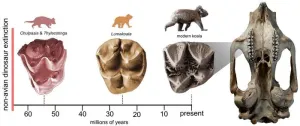(Press-News.org) For the past decade, companies across North America have paid more attention to supporting equity, diversity and inclusion (EDI). This has prompted many organizations to create a leadership role fully dedicated to advancing EDI — so much so that between 2015 and 2020, the job title “head of diversity” increased 107 percent on LinkedIn. By 2021, more than half of S&P 500 firms had named a chief diversity officer.
But a new study from the UBC Sauder School of Business shows many people have deeply held beliefs about who should be an EDI leader, and they are rooted in racial stereotypes.
For the study, published in the Journal of Applied Psychology, roughly 500 participants with hiring experience were given a press release announcing a new leader at a fictitious company; some were told the person was the head of finance, while others were told they were the head of EDI. They were then asked to identify the necessary traits for leaders in those positions and asked what they believed the race of the leader would be.
“We found that, even though the new leader had a generic name and description, people were significantly more likely to assume the finance leader would be white, while the EDI leader would be non-white,” says UBC Sauder assistant professor Dr. Rebecca Paluch (she/her), who co-authored the study with Dr. Vanessa Shum, assistant professor of business administration at California State University San Marcos.
In a second experiment, researchers asked respondents about which traits they associated with different racial groups and leader roles. They found people not only assumed non-white individuals were more likely to be committed to social justice and to have experienced discrimination but also viewed those traits as the most critical for successful EDI leadership.
In a final study, the researchers examined how hiring managers evaluate prospective EDI leaders based on information from a candidate packet. They found hiring managers rated non-white candidates as having stronger leadership qualities for the role and were more likely to recommend hiring them over white candidates. Similar to the findings from the second experiment, this was because hiring managers assumed non-white candidates would be more social justice-minded and would have experienced discrimination.
“We were surprised by how strong the findings were,” says Dr. Paluch, who links the results to Role Theories, which suggest people associate certain groups with particular occupations because of their past and current experiences.
For decades, researchers have found that people often expect business leaders to be white and believe white employees are more likely to possess traits required for successful organizational leadership.
“Although historically business leaders have traditionally been white, which drives that association between being a leader and being white, social justice movements or diversity initiatives have historically been driven by non-white leaders or groups.”
Dr. Paluch says the findings are promising in that they represent a shift in people’s perceptions of who leaders are. What’s more, when they see non-white people in EDI leadership roles, they will be more likely to expect non-white leaders in other top corporate spots as well.
At the same time, the study reveals continued race-based stereotyping in hiring, adds Dr. Paluch, and as a result, EDI roles risk being perceived as less important. In fact, many businesses have already started reducing or eliminating EDI leadership spots as they look to cut costs.
“It’s never good to hire based on biased presumptions. We can't assume things about people just because of the way they look,” she says. “Those biases could ultimately hurt equity, diversity and inclusion in the long run, particularly if there are racial minorities in the role.”
Dr. Paluch says leaders need to understand that discrimination is often built into employment systems. Once they’re aware of those biases, they’re more likely to bring in accountability measures and standardize hiring practices. They also need to prioritize equity, diversity and inclusion; see EDI leaders as central to the management team; clearly define their roles; and compensate EDI leaders equitably.
“Because we find a racial bias for the EDI leader role, it's particularly important not to downgrade the status or necessity of this role, particularly in comparison to other leader roles,” she says.
“Organizations should make sure they're giving EDI leaders the same type of resources, prestige and attention as other leaders in the organization. Just like a Chief of Operations or a Chief of Finance, EDI leaders should be guaranteed a seat at the table.”
END
Many people have biased perceptions of EDI leaders
2023-09-07
ELSE PRESS RELEASES FROM THIS DATE:
Novel formulation boosts antimicrobial properties of the natural hand barrier
2023-09-07
Contact infection is among the most common ways pathogens, such as bacteria and viruses, spread from one person to another. Hand washing and disinfection are important hygiene practices to minimize the probability of catching infectious diseases. Interestingly, our hands also have a natural barrier that fights off pathogens. While this had been known to science for quite some time, the exact mechanisms by which this barrier acts on pathogens remained a mystery until recently.
In a 2021 study published in Scientific Reports, researchers from Kao Corporation, Japan, revealed that lactic acid (LA), which has a molecular ...
US Department of Defense backs Cosimo Commisso’s pancreatic cancer research
2023-09-07
Cosimo Commisso, Ph.D., has received a grant from the Department of Defense for $1 million to advance the research of a small molecule that kills pancreatic cancer cells by disrupting their pH equilibrium. The project is funded as part of the Pancreatic Cancer Research Program (PCARP), which aims to improve our understanding of pancreatic cancer for the benefit of service members, veterans, their families and the general public.
“We’ve seen that this small molecule—called IMD-0354—works on cancer cells in the lab,” says Commisso, associate professor and director of the Cancer Metabolism and Microenvironment Program at Sanford Burnham Prebys. “This ...
High levels of depression found among Canadian older adults with cancer during the COVID-19 pandemic
2023-09-07
Toronto, ON —Older adults who have had cancer had a high risk of experiencing symptoms of depression during the early months of the COVID-19 pandemic according to a new study published in Cancer Management and Research.
The study was focused on a sample of 2486 adults aged 50 and older with a history of cancer who participated in the Canadian Longitudinal Study on Aging. Among the 1765 individuals from the study who had a history of cancer but no lifetime history of depression, researchers found that 1 in 8 experienced depression for the first time during the early stages of the pandemic.
“The ...
Timothy Huang awarded $2.6M to solve Alzheimer’s disease puzzle
2023-09-07
With the help of a new grant from the National Institute of Health for more than $2.6 million, Assistant Professor Timothy Huang, Ph.D., will continue his research on the role of the brain’s immune cells on the risk of developing Alzheimer’s disease.
Alzheimer’s disease affects more than 47 million people worldwide, with 10 million new cases of dementia diagnosed each year. This number will continue to grow as the world population ages. Newly approved FDA treatments for Alzheimer’s remove beta-amyloid, a protein that accumulates into plaques, from the brain. However, ...
Culture-friendly therapies for treating anxiety and depression in Japanese youth
2023-09-07
Cognitive-behavioral therapies (CBT) have become increasingly popular over the past few decades. This psychological treatment, used to treat problems ranging from marital issues, eating disorders, anxiety disorders and depression, has been adopted by clinicians around the world. However, the implementation of CBT still lags outside the Western countries where it was first developed.
In a new review article, researchers examined the most popular CBT programs for young people in Japan, a country that ...
Faulkner to be honored by American Heart Association
2023-09-07
AUGUSTA, Ga. (Sept. 7, 2023) – Jessica Faulkner, PhD, a physiologist whose research is focused on sex differences in cardiovascular disease at the Medical College of Georgia at Augusta University, is the recipient of the Harry Goldblatt Award for New Investigators from the American Heart Association’s 2023 Hypertension Council. She will be honored at the Hypertension Scientific Sessions in Boston this week.
This prestigious award is named for the pathologist who established the first animal model of hypertension in 1934 and recognizes an early career independent investigator working in hypertension or cardiovascular research who has significantly contributed ...
New test shows promise for detecting hard-to-find cervical cancers
2023-09-07
September 7, 2023—(BRONX, NY)—In findings with potentially important implications for cervical cancer screening, scientists at the National Cancer Institute (NCI)-designated Montefiore Einstein Cancer Center (MECC) have developed a test for detecting a type of cervical cancer that Pap tests often miss. The findings published online today in the Journal of the National Cancer Institute (JNCI).
“Our novel test appears sensitive for detecting cervical adenocarcinoma [ADC]—which now accounts for up to 25% of cervical cancer cases—as well as its precursor ...
New koala relative fills a branch of Australia’s unique marsupial story
2023-09-07
Koalas are endangered in much of Australia now but in in the past there were multiple species living across the continent. The discovery of an ancient relative of the koala helps fill a 30 million year gap in the amazing evolution of Australia’s marsupials, according to a new study by Australian and British scientists published in Scientific Reports.
The study was led by Flinders University PhD student Arthur Crichton, who found fossil teeth of the new species at the Pwerte Marnte Marnte fossil site south of Alice ...
Eye-tracking technology helps give a voice to older people living with dementia
2023-09-07
More than 50% of Australians living in residential aged care facilities have a dementia diagnosis, with aged care services around the world preparing for the number of older people aged 65 years and above to double in the next 30 years.
For the first time, experts at the Caring Futures Institute at South Australia’s Flinders University are using innovative eye-tracking technology to ensure that the voices of all older people are heard to drive positive and effective change in keeping with the Royal Commission into Aged Care Quality and Safety’s call to re-assess the quality of aged care in Australia.
The Flinders University ...
Capturing carbon in savannas: New research examines role of grasses for controlling climate change
2023-09-07
In recent years, the escalating impact of global warming has prompted efforts to reverse troubling trends, often by planting trees to capture and remove carbon dioxide from the atmosphere and store it. New research from a team led by Young Zhou, from the Quinney College of Natural Resources and the Ecology Center, shows that, in addition to trees, humble grasses also play an essential role in capturing carbon — more important than previously thought.
A recent initiative set its sights on capturing carbon in tropical savannas, an ecosystem characterized by shared space of trees and grasses. The project initiated ...







